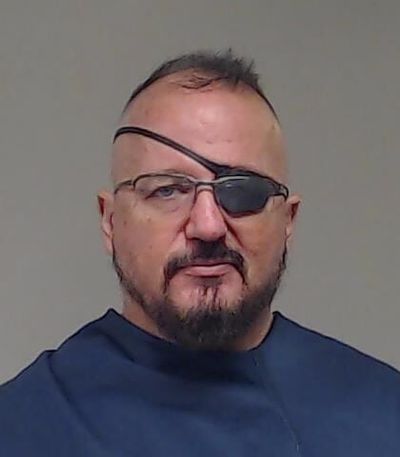Oath Keepers founder calls members ‘stupid’ for US Capitol breach

WASHINGTON – Oath Keepers founder Stewart Rhodes told jurors at his seditious conspiracy trial that it was “stupid” for members of his right-wing group to join Donald Trump supporters who broke into the U.S. Capitol last year to protest the presidential election.
“My goal was to make sure nobody got wrapped up in that,” Rhodes said Monday in a Washington courtroom. He claimed the group’s “mission” on Jan. 6, 2021, was to provide security at Trump events and speakers. Trespassing at the building “opened the door for our political enemies to persecute us,” he said.
After taking the stand in his own defense on Friday, Rhodes detailed his farmworker upbringing, the founding of the Oath Keepers and his reasons for believing the 2020 election was unconstitutional. Prosecutors have cast Rhodes as the ringleader in an alleged conspiracy to keep Trump in power after he lost the 2020 election to Joe Biden.
If convicted, Rhodes could face life in prison. He’s one of five defendants in the first seditious conspiracy trial to emerge from the prosecution of hundreds of people for their alleged roles in the Capitol riot. To win its case against him, the government must convince the jury that two or more people conspired to stop the transfer of power.
Rhodes, who never entered the Capitol building, tried to distance himself from the actions of other defendants, including fellow Oath Keepers, and denied claims that he coordinated efforts to stop Biden from assuming the presidency. Rhodes claimed he wasn’t involved in an effort by others in his group to stash weapons in a Virginia hotel and that he never communicated with some of the defendants on the day of the riot.
According to Rhodes, he was sitting in a hotel room when Oath Keeper Michael Greene called to inform him that the Capitol had been breached. He said he told Greene that he would head toward the Capitol to see what was happening. He said he tried to gather other Oath Keepers who weren’t providing security.
The group founder said he was concerned when he couldn’t locate Oath Keeper member Kelly Meggs, a defendant in the case, who was supposed to escort people connected with Stop the Steal organizer Ali Alexander from the Ellipse to another event.
Meggs went off-mission when he trespassed the Capitol with other Oath Keepers, Rhodes said. The government previously showed calls that Rhodes made to Meggs shortly before the Florida-based Oath Keeper entered the building. Rhodes testified that when he was finally able to reach Meggs, he couldn’t hear him on the phone.
For five weeks, jurors have heard the testimony of government witnesses, including FBI agents, two Oath Keepers who pleaded guilty to conspiracy and a civilian who recorded a meeting with Rhodes.
The government presented evidence that Rhodes was on Capitol grounds while communicating with Oath Keepers who stormed the building. The government seeks to show he acted “as a general overlooking a battlefield” on Jan. 6.
Prosecutors also revealed messages from Rhodes repeatedly warning of a civil war if Biden became president and urging members to resist what he viewed as an illegitimate regime controlled by the Chinese Communist Party. While Rhodes hoped that Trump would invoke the Insurrection Act, he threatened to act if the former president failed to do so, the government evidence shows.
The Insurrection Act gives the president authority to call in armed forces in certain situations.
Rhodes denied that he wanted Trump to use the statute to stop Congress from certifying the election. “We have separation of powers,” he added. Rather, he said he hoped the former president would use that authority to seize data to uncover corruption in both political parties.
Defense attorneys have argued that the government cherry-picked statements that only amounted to bluster and that their clients traveled to Washington to provide security. They have also produced testimony claiming that there was no explicit plan to enter the Capitol building.
Prosecutors also allege the conspiracy didn’t end on Jan. 6. Four days after the Capitol was attacked, Rhodes gathered with a group in a parking lot and typed out a phone message urging Trump to invoke the Insurrection Act.
Jason Alpers, a government witness who claimed an indirect connection to the former president, testified last week that he decided against passing along the message to Trump, because Rhodes’ ideology was too extreme. In the meeting, which Alpers recorded, he informed Rhodes that Trump wouldn’t be invoking the Insurrection Act.
Rhodes said that they should have brought rifles on Jan. 6 if he had known the former president would let “himself be removed illegally,” according to a recording played to the jury. “I’d hang” House Speaker Nancy Pelosi “from the lamppost,” Rhodes said.
In the days before Biden’s inauguration, Rhodes bought gun parts, ammunition and camping supplies, according to government evidence. One photo showed him with Joshua James, the Alabama Oath Keeper leader who pleaded guilty to seditious conspiracy. The government had alleged that James traveled Texas to help stockpile weapons for a possible civil war.
Prosecutors have also claimed that Rhodes and others tried to cover up their actions after the Capitol riot. They earlier showed messages from Oath Keeper lawyer Kellye SoRelle on behalf of Rhodes instructing the group to get rid of any self-incriminating messages. SoRelle “took it upon herself” to add an instruction to delete communications, Rhodes claimed, noting that he disagreed with that advice. He said he told SoRelle to tell the group it was “their right to remain silent.”